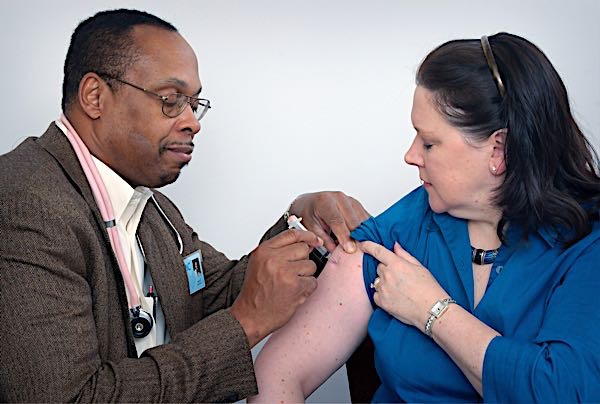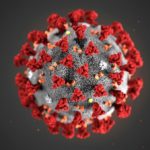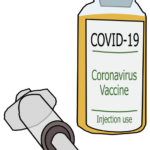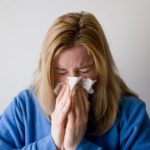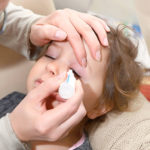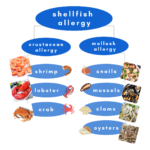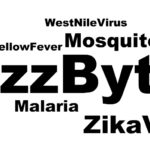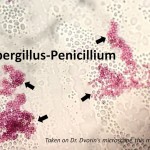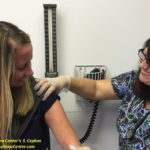the Flu (influenza): Symptoms, Vaccines, and Treatments
By Dr. Marc Goldstein
The “flu” is short for influenza virus that can cause infection in the upper respiratory tract and lungs. The illness that people call the “stomach flu” is almost never caused by influenza. The symptoms of influenza include fever, headache, chills, and cough often followed by generalized aches. Fever is usually high grade (103° F) and may last for 3 to 4 days. Sometimes people also experience runny nose, sneezing, sore throat, or tightness in the chest. Most people recover within a week but may continue to feel exhausted or just not themselves for several weeks.
Flu is generally passed from one person to another by sneezing or coughing. The virus can live for a short time on objects. For this reason, you can come down with influenza by touching something that has been handled by someone who is already infected and then touching your mouth, nose, or eyes. Flu influenza spreads easily and quickly, especially among schoolchildren, their families, and among people who live in crowded conditions. After the virus enters your body, you may have no symptoms for 2 to 4 days. But after symptoms appear, you may spread the virus at least for 3 to 4 days.
There are estimated 5 to 20% of Americans affected each year with seasonal influenza. The incidence of influenza related deaths in the US ranges from 3,000 to 40,000 per year with another 200,000 people hospitalized. The flu is less contagious and has less fatalities than that associated with the current COVID-19 pandemic. However, influenza, like COVID-19, can cause serious complications. In high risk populations, influenza can lead to bacterial pneumonia that can be life threatening. In children, Reye’s syndrome is a serious liver and brain disorder that has been linked to the use of aspirin in children affected with influenza virus.
Who should be vaccinated? Annual vaccination against influenza A and B virus is recommended for everyone 6 months or older without a contraindication. Vaccination can reduce the prevalence of influenza illness and symptoms that may be confused with those of COVID-19. A variety of vaccines are available. The optimum time for a vaccine is from October through the end of November, and although there is no guarantee you will not get influenza, the vaccine can greatly reduce your chance of getting the disease or having a severe case.
Because eggs, thimerosal, formaldehydes and other excipients are used in some injectable flu vaccinations, be sure to tell your doctor if you have allergies to these items. Allergy to egg, however, is not associated with allergic reactions. In 28 studies that have included over 4000 patients with egg allergy (over 650 with a history of severe allergic reactions), there were no reports of anaphylaxis after administration of egg-based inactivated influenza vaccines, although some mild reactions did occur. Currently, any age-appropriate influenza vaccine can be administered to persons who report a history of hives related to egg exposure. People with more severe egg allergies may also receive an age-appropriate influenza vaccine in a healthcare setting that can treat severe allergic reactions. Desensitization protocols are performed in our office for this purpose. The recombinant vaccine from cell culture-based inactivated vaccines are not prepared in chick embryos and therefore do not have egg protein.
The composition of the influenza vaccines may vary. Trivalent vaccines contain only 1 influenza B virus and 2 strains of influenza A virus. Quadrivalent vaccinations contain 2 influenza A and 2 influenza B strains. For patients 65 years and older, a high-dose vaccine is recommended. This year high-dose vaccines include inactivated quadrivalent vaccine which is 4 times as potent antigenically as the standard quadrivalent vaccine. Observational study has shown that a high-dose vaccine is associated with reduced risk of respiratory disease and hospitalization and death compared to standard-dose vaccines.
Influenza vaccine is also recommended in pregnant women without regard to the trimester of pregnancy. Pregnant women should not receive the live attenuated vaccine, which is available only in an intranasal form called FluMist. This is a quadrivalent vaccine that is recommended for ages 2 through 49 and is also contraindicated in patients who have underlying asthma.
Antiviral drugs for influenza are available. Antiviral drugs should be started as soon as possible. It is most effective when it is started within 48 hours after illness onset. It can be considered for healthy asymptomatic patients with suspected or confirmed influenza who are not at increased risk for complication and can be started within 48 hours after illness onset. Oral oseltamivir, IV peramivir, and inhaled zanamivir, or oral baloxavir can be used for treatment of non-pregnant patients with acute uncomplicated influenza.
Post-exposure prophylaxis (PEP) should be considered for persons with increased risk of influenza complications who have not received an influenza vaccine this season; those who received the vaccination within the previous 2 weeks who might not have immunologically responded to the vaccine, for example those who are immunocompromised or when the match between the vaccine and circulating strain is poor. It is not recommended for healthy persons exposed to influenza or when greater than 48 hours have elapsed since exposure.
Antiviral chemoprophylaxis is recommended in an institutional setting (like nursing homes) to help control influenza outbreaks. Oseltamivir and zanamivir are FDA approved for post exposure prophylaxis. Chemoprophylaxis can be continued for 7 days after the last known exposure in an outpatient setting.
Recent
Popular

